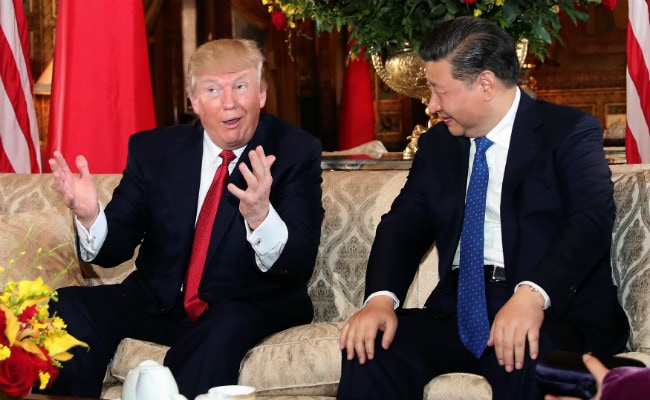Meta Monopoly Trial: FTC's Defensive Pivot

Table of Contents
The FTC's Initial Antitrust Case Against Meta
The FTC's initial antitrust case against Meta centered on its acquisitions of Instagram and WhatsApp. The commission argued that these acquisitions were anti-competitive, allowing Meta to stifle potential rivals and maintain its dominant position in the social networking market. Mark Zuckerberg and Meta's leadership were directly implicated.
The FTC faced considerable challenges in proving anti-competitive behavior under traditional antitrust laws. Demonstrating that Meta acted to monopolize the market, rather than simply achieving market dominance through innovation and superior products, proved difficult. The complexities of defining the relevant market (is it social networking in general, or specific niches within it?) also presented obstacles.
- Key Arguments of the FTC's Initial Case:
- Meta possesses monopoly power in the social networking market.
- The acquisitions of Instagram and WhatsApp suppressed competition.
- These actions harmed consumers by limiting choice and innovation.
- Meta engaged in anti-competitive practices to maintain its market dominance.
The Shifting Sands: Evidence of a Defensive Pivot
Recent developments suggest a significant shift in the FTC's legal strategy. Instead of focusing solely on proving Meta's overall monopoly power, the FTC appears to be concentrating on specific anti-competitive actions undertaken by Meta. This represents a more targeted and potentially less ambitious approach.
Several court filings and statements from the FTC hint at this change. The agency may be adjusting its legal arguments to focus on more readily provable aspects of the case, potentially conceding certain points to strengthen their case on others.
- Examples of the FTC’s Apparent Defensive Maneuvers:
- A narrowing of the scope of the lawsuit to focus on specific acquisitions or practices.
- An adjustment of legal arguments to emphasize specific instances of anti-competitive conduct.
- A greater reliance on specific evidence to support their claims, rather than broad assertions of market power.
Potential Reasons for the FTC's Defensive Pivot
The FTC's strategic shift likely stems from several factors. Early challenges in proving a traditional monopoly case, including difficulties obtaining and presenting evidence, may have prompted a reassessment of the legal strategy. The complexities of proving anti-competitive behavior in the rapidly evolving digital market also play a role.
External factors also likely influenced the FTC's decision. Judicial precedent and evolving legal interpretations concerning antitrust enforcement in the tech industry could have impacted the agency’s approach. Furthermore, political pressure and shifting regulatory landscapes could have played a role.
- Potential Reasons for the Pivot:
- Weaknesses in the FTC's original case related to proving overall market monopoly.
- Difficulties in obtaining and presenting sufficient evidence to support the initial claims.
- Challenges in applying traditional antitrust frameworks to the dynamic nature of the digital market.
- Shifting legal precedents and interpretations relating to antitrust enforcement in the tech sector.
Implications of the FTC’s Altered Strategy
The FTC's altered strategy significantly impacts the outcome of the case. A more focused approach, while potentially easier to prove, might not result in the sweeping remedies initially sought by the FTC. It could lead to a less decisive victory, or even a negotiated settlement that falls short of completely dismantling Meta’s market position.
The implications extend beyond this single case. The FTC’s altered approach will influence future antitrust enforcement actions against other large technology companies. It suggests a need for refined legal strategies and potentially for adjustments to antitrust laws to better address the specific challenges presented by the digital economy.
- Potential Outcomes:
- A victory for Meta, dismissing or significantly weakening the FTC's claims.
- A settlement between Meta and the FTC, resulting in concessions but avoiding a full-scale trial.
- A modified ruling that addresses specific anti-competitive practices but doesn't declare Meta a monopoly.
- Setting a precedent for future antitrust cases involving big tech, influencing how such cases are prosecuted and judged.
Conclusion
The FTC's apparent defensive pivot in the Meta monopoly trial marks a significant turning point. The shift in strategy highlights the complexities of proving antitrust violations against powerful tech companies and raises questions about the effectiveness of current antitrust laws in the digital age. The outcome of this case will have far-reaching implications for future antitrust enforcement and the competitive landscape of the tech industry.
Call to Action: Stay informed about the ongoing Meta monopoly trial and the evolving legal strategies employed by both sides. Understanding the complexities of this case is crucial for anyone interested in the future of competition and regulation within the powerful world of social media and big tech. Follow further developments in the Meta Monopoly Trial to understand the ramifications of this evolving legal battle.

Featured Posts
-
 Drake Bell And The Friends Reference Dissecting His Amanda Bynes Comparison
May 18, 2025
Drake Bell And The Friends Reference Dissecting His Amanda Bynes Comparison
May 18, 2025 -
 Xi Jinping Meeting Trump Confirms Willingness To Travel To China
May 18, 2025
Xi Jinping Meeting Trump Confirms Willingness To Travel To China
May 18, 2025 -
 Selena Gomez Vs Taylor Swift A Wake Up Call Over Blake Lively And The Justin Baldoni Lawsuit
May 18, 2025
Selena Gomez Vs Taylor Swift A Wake Up Call Over Blake Lively And The Justin Baldoni Lawsuit
May 18, 2025 -
 Voter Guide Southeast Texas Municipal Elections In May 2025
May 18, 2025
Voter Guide Southeast Texas Municipal Elections In May 2025
May 18, 2025 -
 Mit And The Student Ai Research Paper A Developing Story
May 18, 2025
Mit And The Student Ai Research Paper A Developing Story
May 18, 2025
Latest Posts
-
 No Deposit Bonus Codes Your April 2025 Guide
May 18, 2025
No Deposit Bonus Codes Your April 2025 Guide
May 18, 2025 -
 Claim The Best No Deposit Bonuses In April 2025
May 18, 2025
Claim The Best No Deposit Bonuses In April 2025
May 18, 2025 -
 Claim 50 Free Spins No Deposit Bonus Uk Players Not On Gam Stop
May 18, 2025
Claim 50 Free Spins No Deposit Bonus Uk Players Not On Gam Stop
May 18, 2025 -
 Top No Deposit Bonus Codes For May 2025
May 18, 2025
Top No Deposit Bonus Codes For May 2025
May 18, 2025 -
 Top No Deposit Bonus Codes For April 2025
May 18, 2025
Top No Deposit Bonus Codes For April 2025
May 18, 2025
